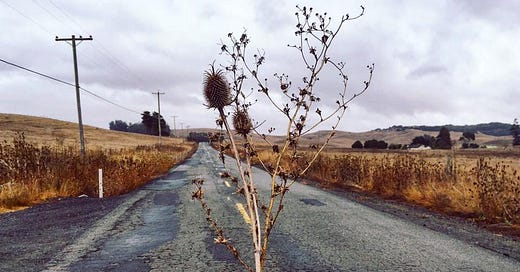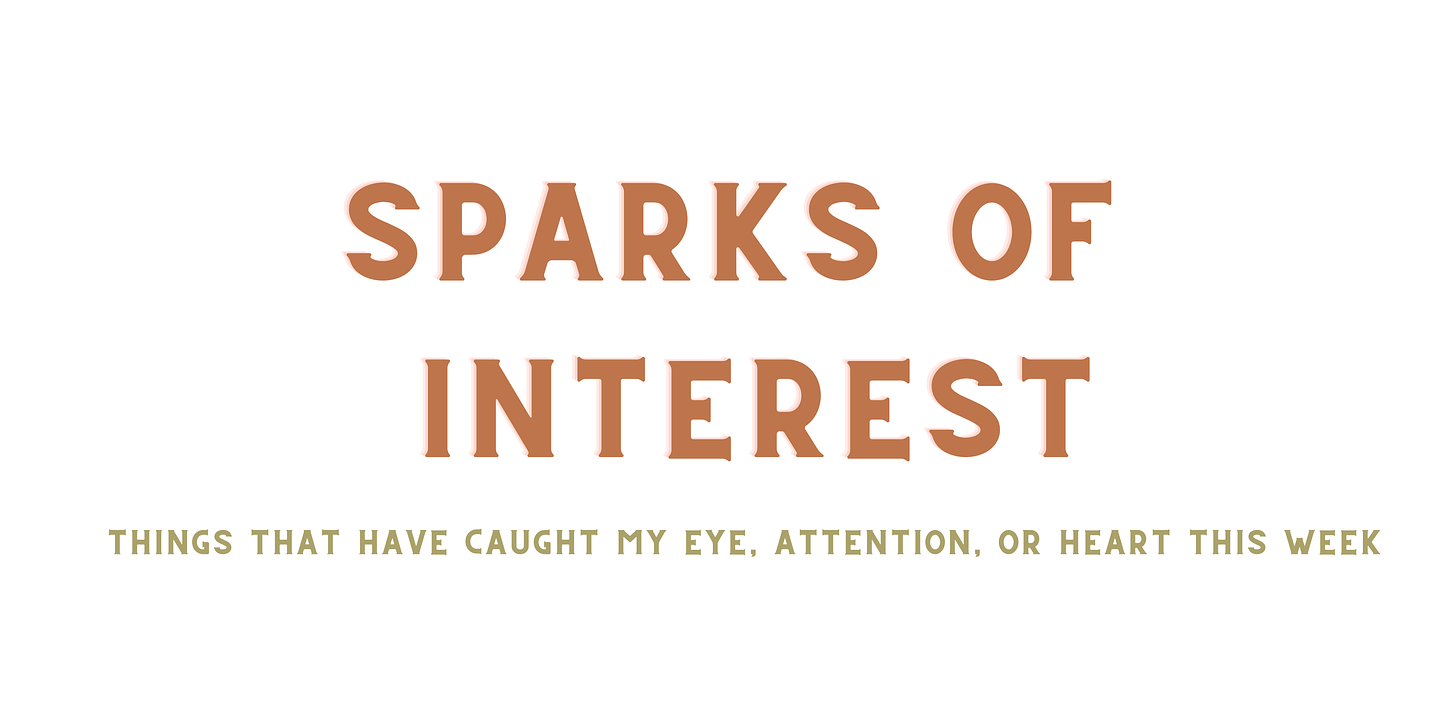Human Stuff is a free weekly newsletter. It is best viewed on a full screen. If you’d like to create reciprocity for my work and also access my monthly reflection guide, I invite you to become a paid subscriber. This is a reader-supported offering and I’m so grateful for your presence here.
Please feel free to share parts of this newsletter that connect with you on social media or send to someone you love.
A song I’m loving (also my daughter’s current fave):
Yesterday, I had the privilege of attending a book club meeting with a group of adoptees who picked my book for their January read. This isn’t about book clubs, or adoptees, or my book. It’s about unlovability.
During the Q&A portion, someone shared about their inherent felt sense of unlovability — and the thick wall that permeates around it, making it feel impossible to seep out of them. They shared about glimpses of seeing otherwise, but a deeply-rooted story of being unlovable, which is something many humans experience, adoptees in a particular form. They shared their frustration with wanting it to go away and knowing it’s still there, somewhere, peeking out at times to remind them of its presence.
I shared a response and at the end, said, “I also wonder — what if it weren’t to ever go away? And what if, when it arises, you can love it? Offer it the love it tries to deny you of? What if that’s enough of a task for now?”
Can we love our story of unlovability? Can we love our belief of not-enoughness? Can we love the parts of us we’re supposed to be ashamed of, fight against, incessantly try to hide, or make go away?
I shared this question because it is one I return to often — how can I be with this hard part, this sticky mess, this piece of me that feels like a monster… with love? How can I slowly pivot from disgust to nurturance? How can I transition from pushing away to pulling in to receive my own comfort when it might be used to receiving my rejection?
Our society teaches us to loathe the parts of ourselves we think need fixing, eliminating, erasing. We’re supposed to hate our fat — to literally suck it out of our bodies to make ourselves “better”. We’re supposed to hate our need for a hearing aide, or our aging bodies, or our difficulty paying attention, or our addictions, or our depression. We’re supposed to hate our limitations, our faulty beliefs, our doom piles, our I-said-something-I-didn’t-mean moments. We’re supposed to hate those parts of us until they straighten out, until they re-shape into normalcy, until they become more socially acceptable, until they realize they’re making us bad and cut it out, until they form themselves into the mold of Good Enough According To Out There.
Something I’ve learned slowly, over time, that I continue to learn in new ways, is that I cannot hate away the things I wish were different about me. I cannot loathe them into disappearance. I cannot criticize them so much that they finally say, “you know what? You’re right! I am the worst! I’ll stop now,” and fade into the sky. God, I’ve tried. I’ve been desperate at times, pointing my finger at my own dark places, shaking my head in disapproval at my own limitations, sighing with frustration at the things I struggle with, as if being an authoritarian presence over my tender, delicate parts is what will toughen them up and make them better — as if they need to be toughened up instead of loved.
Most recently, this has been arising as I move deeper into the process of shaping a new book. There are parts of me screaming, “NO. YOU CAN’T DO IT. DON’T EVEN TRY.” There are parts of me yanking my energy back into inaction, invisible strings pulling my shoulders up when I start to write so I feel physically uncomfortable, thus not doing it as long, igniting the inner voice insistent that I don’t belong, that I will fail, that everyone will hate it and therefore hate me, that failure will be proof of what those parts have been trying to tell me all along. My eyes well up with tears as I write this because these parts are at once familiar and unfamiliar; I know them well, like kin, and as I’ve grown, they have become more and more distant. Yet they still show themselves sometimes, and I have to remember they won’t leave by hating them.
Putting ourselves out there in new ways when there is the potential of rejection, judgment, criticism, or shunning is deeply difficult when our core wounds circle around those fears. Choosing to show up to the work we’re called to create or do is scary when doing so means also showing up to face the parts of us that will tell us not to, that we’ll fail, that we can’t. There are so many things I’ve avoided because I’ve wanted to avoid the harder parts of doing them. There are so many things I haven’t yet tried because I’ve felt safer not facing those parts altogether — letting them lay dormant instead of poking them awake with my trying. But when I remember I can love those parts — I can be with those parts — I can face those parts with open palms instead of fists ready to fight, they soften. And so do I. And the possibility of doing the thing that feels hard becomes a little bigger — a little closer — a little more felt in my ribcage, in my heart… even when those parts might never go away.
So I show up to the page and gently breathe until my shoulders drop. And I locate the energy within that pulls me forward into momentum. And I notice the screaming voice so I can tend to it, soothe it, acknowledge it, love it — even if it isn’t true, even if it isn’t helpful, even if it gets in the way. And I create conditions that make showing up to my writing and work the most nourishing, supportive, and meaningful it can be, gifting the parts of me needing the reminder that my work is sacred and worth showing up for. And I ask for reassurance from people who see my wholeness when parts of me get in the way of remembering it’s there. And I practice the art of loving what wants to get in the way, loving what wants to keep me from my desires, loving what wants to make me feel small and incapable, loving what wants to stop me from moving closer toward the things that bring me most alive. And I practice. And I practice. And I practice.
Something I notice when I practice this with my own unlovable parts, my own fears and inner dark basements and pieces I’d love no one to see or know about, is that I also find love for the “unlovable” parts of others, too — I find ways to soften around the imperfection of others, the mistakes of others, the cringe of others, the humanity of others. I remember none of us are inherently bad or broken. I remember none of us are actually unlovable — but we are human, flawed and often sloppy and not having it all figured out, ever. And these truths become less of a judgment point and more of a “oh, me too — we’re not alone” point. When I see the “unlovable” parts of others and choose to let them be a mirror of our unaloneness instead of proof of anyone’s brokenness, I more easily cultivate that within me, too. The spiral creates a momentum of knowing not everything we want to hate about ourselves needs to disappear before we can orient toward it with love. And maybe the practice of that, no matter how consistent or imperfect, is enough. Is everything.
May we use love as a balm over the parts we think we should hate.
May “love” look any and every way that feels nourishing for us.
May we remember we don’t need to rid ourselves of the tough parts before we show up, before we move closer toward what brings us alive.
May we listen to the parts of us we might instinctually want to silence.
May we let ourselves be both unfinished and already enough.
May we see what unfolds when we let it all be practice.
My unlovable parts see yours, honor yours, love yours. Thanks for being in it with me.
△What Monks Can Teach Us About Paying Attention
△ Believing in yourself and your work
△ I really, really loved 4,000 Weeks — Time Management for Morals
△ Tracee Ellis Ross on making peace in your own head
△ My heart has been with the AAPI community and the family of Tyre Nichols
△ I’m looking forward to watching this show
△ Why Is America the Most Violent Country in the Western World?
△ 50 states and 139 countries. I mean… just wow. Thank you for reading.
With care,
Lisa








Your letters always seem to talk about the things swirling around my head. I thank you for that. I guess that just shows our interconnectedness as human beings. Even when we think we're alone in our suffering, in our weird and twisted stories we tell ourselves, there is always someone else out there going through a similar experience.
You’ve inspired me w/ this piece. Thanks.